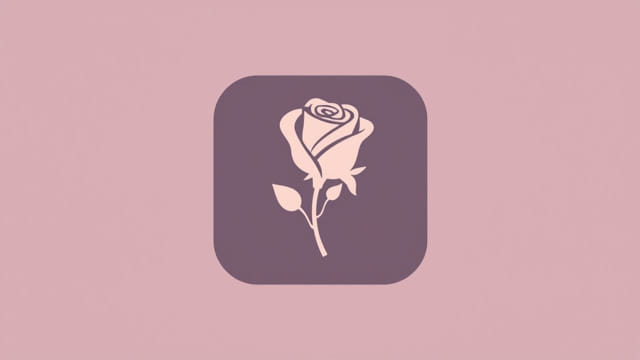Among the many retellings of classic fairy tales, the novelization of Beauty and the Beast stands out as a timeless reimagining of love, transformation, and inner beauty. Whether inspired by the animated Disney adaptation, the original French tale by Jeanne-Marie Leprince de Beaumont, or other literary versions, the novelization deepens the familiar story by exploring characters’ emotions, backstories, and moral conflicts. Readers are offered a more immersive experience than what is typically presented in film or stage versions, allowing the magic and humanity of this beloved story to fully come to life on the page.
The Origins of the Tale
Historical Roots
The story of Beauty and the Beast traces back to 18th-century France. The earliest known version was written by Gabrielle-Suzanne Barbot de Villeneuve in 1740, later abridged and rewritten by Jeanne-Marie Leprince de Beaumont in 1756. Beaumont’s version became the template for most modern adaptations, including novelizations, which often retain her moral messages about kindness, humility, and seeing beyond appearances.
Influence on Modern Adaptations
Many novelizations draw heavily from the Disney interpretations, particularly the 1991 animated classic and the 2017 live-action adaptation. These versions added layers of depth to Belle and the Beast, and novelizations build on these expansions to provide inner thoughts, richer dialogue, and detailed emotional journeys.
Plot Expansion in Novel Form
Character Development
In novel form, Belle’s intelligence, curiosity, and desire for adventure are given more attention. Her love for books and learning is often explored in chapters that describe her thoughts, dreams, and inner conflicts about her life in the quiet village. Likewise, the Beast’s torment, guilt, and slow emotional awakening are carefully examined, making his transformation feel more meaningful.
Supporting Characters
Novelizations often give expanded roles to characters like Maurice (Belle’s father), Gaston, and the enchanted castle staff Lumière, Cogsworth, Mrs. Potts, and Chip. Through their perspectives, readers see the effects of the Beast’s curse on everyone involved, adding layers of complexity and emotional resonance.
Thematic Depth
Beauty Beyond the Surface
The central theme of Beauty and the Beast the value of inner beauty is more powerfully conveyed in novel form. Belle’s gradual understanding of the Beast, and her realization that love is about kindness and character, becomes a slow, believable evolution rather than a sudden change.
Redemption and Transformation
Many novelizations emphasize redemption. The Beast is not just a victim of a curse; he is responsible for his downfall. His path toward regaining his humanity is symbolic of personal growth and change, a theme explored more thoroughly in prose than in visual media.
Freedom and Choice
Another key element often highlighted in the novelization is Belle’s sense of agency. While she sacrifices her freedom to save her father, novelized versions frequently portray her as making empowered choices rather than being a passive prisoner, enhancing her role as a strong female protagonist.
World-Building and Setting
The Enchanted Castle
Novelizations allow for vivid descriptions of the Beast’s castle its mysterious hallways, magical objects, and hidden secrets. The enchanted setting takes on a character of its own, becoming both a place of fear and wonder. Writers use this to reflect the psychological states of the characters, especially the Beast.
The Village and the Outside World
Belle’s provincial life and the ignorance of the villagers, particularly Gaston’s influence, are described with more nuance. The contrast between the mundane and the magical heightens Belle’s internal longing for something more, reinforcing the story’s message of exploration and growth.
Romantic Evolution
Building Emotional Bonds
In the novelization, the romance between Belle and the Beast is developed slowly. Their interactions evolve from tension and fear to mutual respect and affection. Scenes of shared meals, conversations, and reading together are expanded with internal reflections that show their growing connection.
Moments of Vulnerability
The Beast’s vulnerability is a crucial part of the romantic arc. Through his thoughts and memories, readers witness his transformation from a prideful prince to a man capable of love and selflessness. Belle’s empathy becomes the catalyst for this change.
Popular Novelizations
- Beauty and the Beast: Lost in a Bookby Jennifer Donnelly A unique spin-off that explores Belle’s adventure into a magical book within the castle’s library.
- As Old as Timeby Liz Braswell Part of the Twisted Tales series, this reimagining explores what would happen if Belle’s mother was the enchantress.
- Beauty and the Beast Junior Novel A faithful retelling of the 2017 film for younger readers, emphasizing character thoughts and motivations.
Each of these books adds a distinct layer to the story while staying true to its heart.
Impact on Readers
For Young Readers
Novelizations help children understand themes like kindness, bravery, and looking beyond the surface. By entering Belle’s mind, readers gain insight into emotions like fear, loneliness, and courage, fostering empathy and emotional intelligence.
For Teen and Adult Readers
For older audiences, novelizations offer nostalgia and depth. They explore the psychology of love, redemption, and transformation. Some versions even introduce darker or more mature themes, making the story suitable for a broader demographic.
The novelization of Beauty and the Beast transforms a familiar fairy tale into a richly layered narrative filled with emotional insight, thematic complexity, and vivid world-building. By diving deeper into the hearts and minds of its characters, these books allow readers to experience the story in a profoundly personal way. Whether for young readers discovering the tale for the first time or adults revisiting a childhood favorite, the novel format offers a timeless journey through enchantment, empathy, and enduring love.
